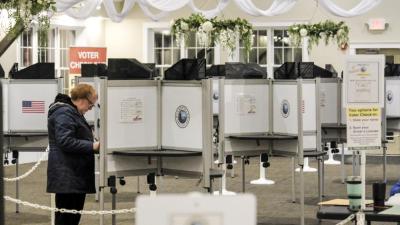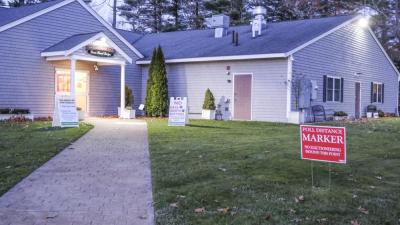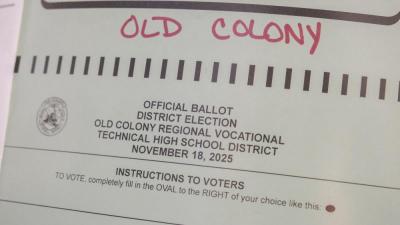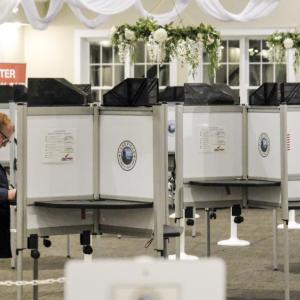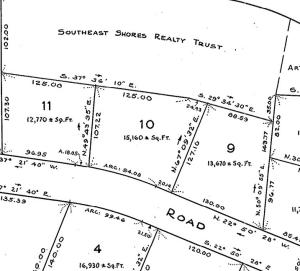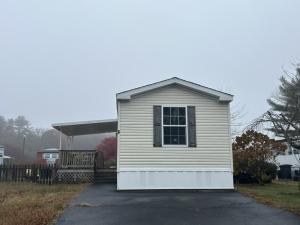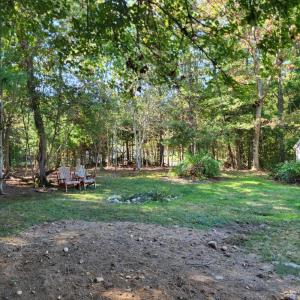Voters deny Old Colony high school’s $288 million building project
LAKEVILLE — A majority of voters across the five member towns of the Old Colony Regional Vocational Technical School district did not approve the school’s $288 million building project on Tuesday.
The decision came from a simple majority across votes from Lakeville, Acushnet, Carver, Mattapoisett and Rochester — the five towns who send students to Old Colony. In Lakeville, voters did not approve the project, which nulled the second ballot question of whether to fund the project with a temporary increase in taxes.
The project received a final vote of 3, 112 against the project, to 1, 923 for it, across the five towns on Tuesday, Nov. 18.
According to the Lakeville Town Clerk’s Office, 424 Lakeville voters approved the project, and 478 did not approve the building project that would construct a new school building for Old Colony. The proposed project would have increased the student population from 560 to 776 students, and modernized classrooms and overall infrastructure of the 50-year-old building.
In Acushnet, 472 voters approved the project and 1,459 voted against it. Carver voters landed with 246 votes to approve, and 284 votes to disapprove. In Mattapoisett, 278 voters approved and 202 did not, and in Rochester votes for the project came out to 503, and 689 votes against it.
Mattapoisett was the only member town to approve the project.
Old Colony Superintendent Aaron Polansky said even though the new building project was rejected, there are still costly improvements to be done at the school.
Per state academic standards, the school is currently too small for its current student population. Polansky said the school suffers from aging infrastructure, failing systems, and a lack of both fire protection and backup mechanisms for their water supply.
“I'd say the first two priorities are water redundancy protection and replacing the 50-year-old water tank,” Polansky said.
The cost to repair the current building is significant. The school district estimates it would cost about $134 million to make all necessary repairs and renovations. In addition, that cost is estimated without any state-grant funding to soften the price to member towns — whereas the new building proposal would have seen a state reimbursement of $129 million.
Repairs would not increase the student population, but bring needed improvements to safety, accessibility and energy efficiency standards.
The school district can come back to the voters another time with a new building proposal — but they would have to wait until the competitive state grants become available again in the future.
On Tuesday, Lakeville voters delivered their decisions at the polls held at the Ted Williams Camp building.
Hilary Wood, who voted Tuesday evening, said she was concerned about increased taxes in Lakeville.
“[Raising taxes] is just a bit concerning — even though it's for something really good. I'm hoping that they can do something that's a little more cost effective,” Wood said.
Lakeville voter Joao Chavs also said it was a difficult vote to cast, since voters like him have to balance the needs of the school with the possible increase in taxes.
“It's always difficult when the town wants to raise people's taxes,” he said. “But obviously, I think the students need a new school.”
Father and son, Bill and William Kane, said they hoped the project would pass to benefit future students at Old Colony. William Kane, 18, is studying computer science at Old Colony and voted for his first time on Tuesday.
“The school I go to right now, it's small, and it does its job. It's a great school and has great staff, but it needs an update. It needs to be modernized for everyone else coming in,” William Kane said.
“I think the school has been fantastic, and it's an amazing place,” Bill Kane added. “[Enrolling at Old Colony] is probably one of the best decisions we ever made.”
Polanksy said after the vote, Old Colony will begin considering alternatives to address the longstanding problems of the 50-year-old building.
“In the coming months, we will reflect on the feedback and consider our next steps,” wrote Polanksy. “We hope [people] will remain part of the conversation as we work toward solutions that support our students and a vision moving forward.”
















